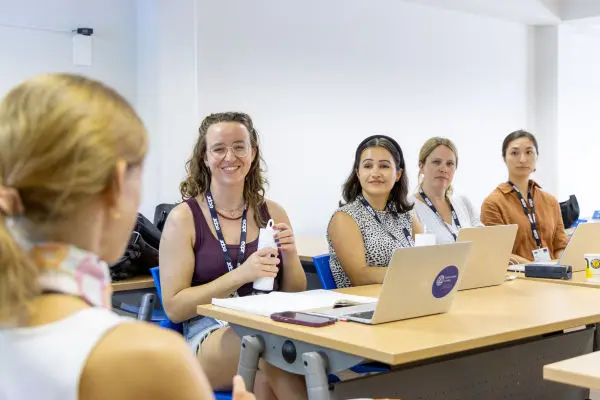
Colchester, United Kingdom
Political Ethnography: Method, Sensibility, Writing
When:
16 February - 20 February 2026
Credits:
4 EC
Read more
Social Sciences
When:
08 July - 28 July 2019
School:
Institution:
Corvinus University of Budapest
City:
Country:
Language:
English
Credits:
6 EC
Fee:
550 EUR

This course is entitled to engage students with the challenge of creating 21th century cities based on knowledge and innovation. Principles as technological enhancement (smart city), sustainability (green, circular economy), prosperity, wellbeing and equity can provide the conceptual foundation of a new integrated developmental approach that values creativity, knowledge and innovation. The processes of designing and implementing such an eco-system need highly professional experts and facilitators to work with divers stakeholders in order to mobilise not only capital and construct new infrastructures, but to invite people and generate community energies to fuel change.
During the proposed inspiring journey students will be challenged by multidisciplinary knowledge and experimentation in scientific areas as:
Economic Geography
Agglomeration Theory
Public Management, Good Governance
Regional economic development and competitiveness
Development Policy, Regional/Cohesion Policy
Complexity Theory
Sociology, Social Psychology
Theory and practice of Innovation and Knowledge Management Systems
HE Studies/ Triple Helix model
Students completing this course will be able to identify shocking differences between traditional and cutting edge city development approaches. As junior experts, students will be passionate in taking part in local and regional development policy discussions, and ready to become active partners in the design and delivery of city/urban development projects.
1. Global cities – contemporary concepts
- Richard Florida: New urban crisis
- Central European Context,
- Budapest - development walks (2 afternoon), and cruising on the river Danube.
2. The role of institutions, technology, knowledge and innovation
a. Transformation of local government roles, the potential of human capacities
b. Regional entrepreneurial and innovation environment
c. Complex systems and its consequences on local policies
d. Universities as knowledge agents, the Triple Helix model
e. Co-design and the changing role of creative industries
3. Socio-spatial consequences of globalisation in cities
a. Demographic changes in the urbanised developed world
b. Suburbia and post-suburbia
c. Polycentric development
d. Studentification, tourism
e. Entrepreneurs rediscover central locations
f. Forms of gentrification
g. Accessibility and equity in an increasingly specialised world.
István Vilmos Kovács; István Kollai, János Balázs Kocsis, Éva Blénesi
Gained knowledge and understanding of:
- urban development, the role of density
- agglomerations, outward and reverse flow
- metropolitan areas, the cases of Budapest, Tampere, Shanghai
- contemporary economic, social and environmental challenges,
- the role of knowledge and innovation in a regional context
- transformation of the role of local governments
- the role of universities, the Triple Helix model
- the new trends of integrated urban development
- the importance of evidence based assessment and improvement policies
- the management consequences of acting in simple or in complex systems.
Acquired skills:
- students will be able to
o run assessment exercises to analyse the level of development
environment: industrial vs green areas
prosperity vs stagnation
urban poverty vs equity
identical vs mass cultural milieu
etc.
o to relate the venues of Budapest to developmental issues
o to set targets for short, medium and long run
o to identify development tools, measures
o to launch meaningful partnership events, processes
o to work together with unprecedented technological opportunities
Gained attitudes:
- curiosity about the stake of urban challenges
- inspiration by the impact of good city governance
- commitment to personal development and to community engagements
- becoming open to interdisciplinary links, and synergies
- devoted to work in partnership, in co-design and co-delivery processes.
Fee
550 EUR, Please note that every student who is coming from a partner institution of Corvinus University will receive a 50 euro discount which is not calculated in the table below. Early-bird registration (until 28th of April) EUR 550 Final registration (until the 26th of May) EUR 600 Two 6-credit courses with Early-bird registration (save 200 €) (1 morning and 1 afternoon course) EUR 1000 Two 6-credit courses (save 100 €) (1 morning and 1 afternoon course) EUR 1100 Social and cultural activities package: EUR 190
When:
08 July - 28 July 2019
School:
Institution:
Corvinus University of Budapest
Language:
English
Credits:
6 EC

Colchester, United Kingdom
When:
16 February - 20 February 2026
Credits:
4 EC
Read more

Antwerp, Belgium
When:
02 February - 06 February 2026
Credits:
3 EC
Read more

Utrecht, Netherlands
When:
15 December - 17 December 2025
Credits:
1 EC
Read more